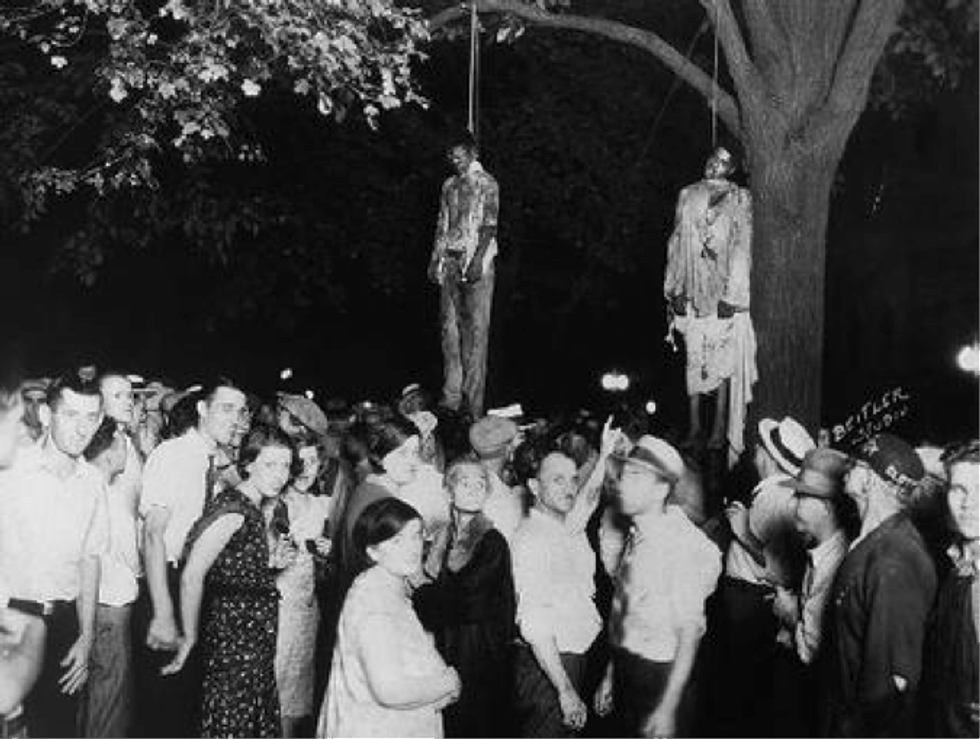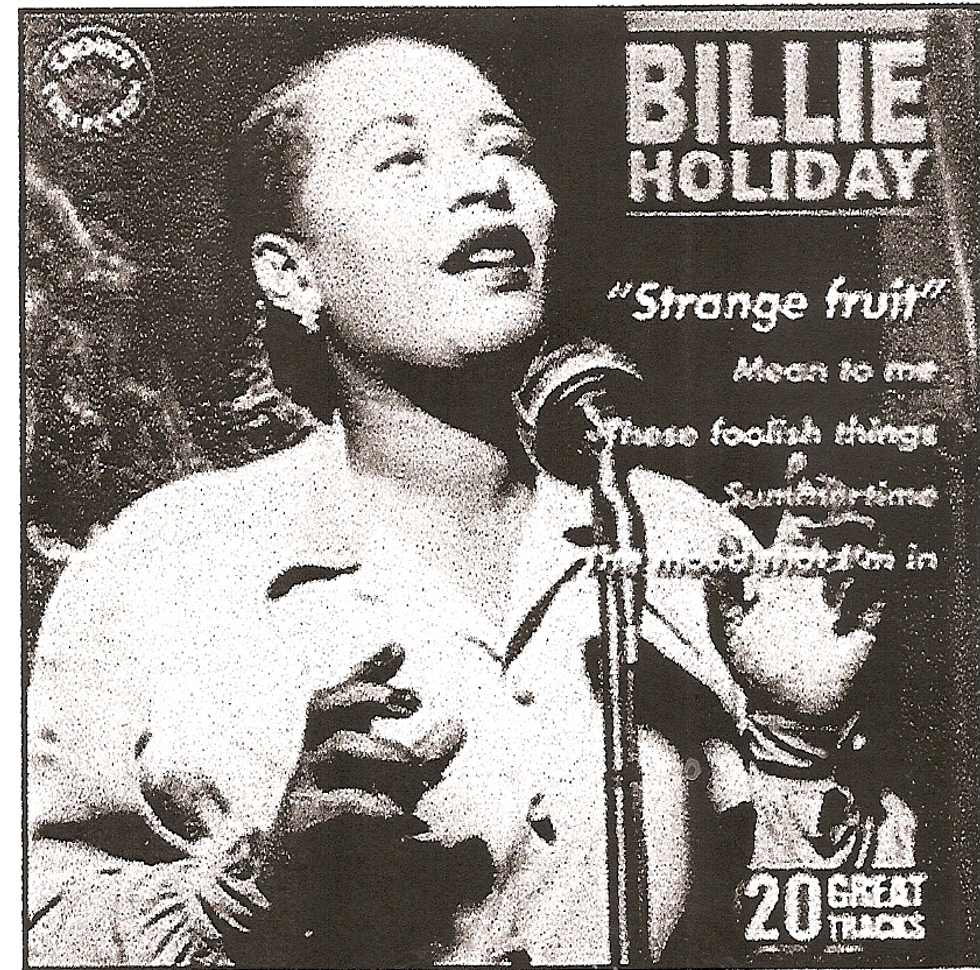Southern trees bear strange fruit,
Blood on the leaves and blood at the root,
Black bodies swinging in the southern breeze,
Strange fruit hanging from the poplar trees.
Pastoral scene of the gallant south,
The bulging eyes and the twisted mouth,
Scent of magnolias, sweet and fresh,
Then the sudden smell of burning flesh.
Here is fruit for the crows to pluck,
For the rain to gather, for the wind to suck,
For the sun to rot, for the trees to drop,
Here is a strange and bitter crop.
My 16 year old brother wanted the most awkward poem to perform at his class's poetry slam, and that is how I was introduced to Strange Fruit.
"It deals with America and the black and white problem. Really, the ugliness of it. That is about the ugliest song I have ever heard" - Nina Simone
The Equal Justice Initiative has recently documented 3959 lynchings of black people in twelve Southern states between the years 1877 and 1950. This is at least 700 more lynchings than previously reported, and serves to prove that racial terror lynchings were more abundant than previously thought. This poem, turned into song, was one of the first nationwide protests made against cruelty towards blacks. It was one of the first steps taken that spurred the Civil Rights Movement. It has a place in history, and yet, is not remembered today.
"Strange Fruit was originally composed in protest of lynching by Abel Meerpol in 1937 after viewing this famous photograph:
In the middle of the night a mob arrived and broke into the cells. After they were beaten to the brink of death, Thomas Shipp was originally hung from the bars of the prison. Abram Smith was dragged to the nearest tree and hung. When he struggled to get free from the noose, he was taken down, stabbed, and both of his arms were broken before he was tied back into the tree. They moved Thomas’s body to string him up in the tree as well.
The last boy, James Cameron, was about to be hung when someone pretested that he was too young and had nothing to do with the murder or rape. The mob released him. James was relocated to another prison and, during trial, Mary Ball admitted that she had not been raped. Although it was proven that James had nothing to do with the events, he spent four years in prison. Later in his life, working as a black and lynching activist, he founded America’s Black Holocaust Museum. He died in 2006 at the age of 92.
The poem was inspired by that picture of the lynching. Soon afterwards it gained popularity through Billie Holiday's sung version, although other famous artists have covered the song such as Nina Simone. More recently, India Arie recorded it on her album Songversation and Kanye West sampled Nina Simone's version on his tracks "Blood on the Leaves" and it's also referenced in his track "New Slaves".
At first I didn't like the song. The way Billie Holiday sings it isn't enjoyable whatsoever. It took a second for me to remember that this is not a song meant to be liked. It's supposed to be disturbing, just as the subject is disturbing. There is no beauty in bodies hanging from trees. Referring to them as "fruit" implies that this was a common sight and acceptable.
We need to look back at our history and acknowledge the horror of it. This is a poem worthy of remembrance.























